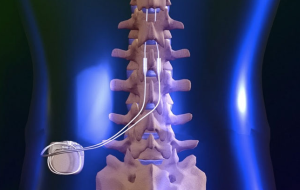FAQs of Diabetic Neuropathy

What is diabetic neuropathy and how is related to diabetes?
Diabetic neuropathy occurs as a result of mismanagement of blood sugar levels and impacts the nerves in the body. Not everyone with diabetes develops diabetic neuropathy,  but those at risk for the condition have not properly managed their high blood sugar levels.
but those at risk for the condition have not properly managed their high blood sugar levels.
Defined as nerve damage due to high blood sugar levels within the body, diabetic neuropathy is a very serious condition that can lead to a variety of problems. According to the ‘fact sheet’ published by the Centers for Disease Control and Prevention and Diabetes Public Health Resource, there is an estimated 8.3% of the entire population affected by diabetes in 2010. This means that nearly 26 million people with in the United States have diabetes. This number is probably much higher when looking at those with “pre-diabetes.”
This number is staggering and some in the medical community believe it to be an epidemic that the nation is facing. There are 13 million men reported to have diabetes and 12.6 million women (National Center for Health Statistics, 2010). Of those impacted by diabetes a significant number do not manage their disease, making them highly susceptible to developing diabetic neuropathy.
What are the common causes of diabetic neuropathy?
Stating that diabetes causes diabetic neuropathy is too general. In fact, it is the prolonged  exposure to significantly high sugar levels in the blood that may damage nerve fibers, resulting in the onset of diabetic neuropathy. While doctors do not understand why this occurs, preventing it from happening is critical.
exposure to significantly high sugar levels in the blood that may damage nerve fibers, resulting in the onset of diabetic neuropathy. While doctors do not understand why this occurs, preventing it from happening is critical.
When high blood glucose (sugar) interferes with the transmission signals of nerves, a weakening of blood vessels occurs. The high sugar level actually weakens the walls of the capillaries (blood vessels) and causes a disruption of the delivery and supply of oxygen and nutrients to the body, particularly that area of the body. Damage to the nerve fibers that occurs due to the development of diabetic neuropathy can initially cause severe pain and eventually major sensory issues and the inability to detect pain, heat and cold.
There are a variety of factors that contribute to the onset of diabetic neuropathy, including:
- Nerve inflammation
- Smoking and overuse of alcohol
- Certain genetic factors
What are the symptoms of diabetic neuropathy?
The symptoms associated with diabetic neuropathy are contingent on the type of neuropathy a person has developed. There are four distinct types of diabetic neuropathy:
- Peripheral
- Autonomic
- Radiculoplexus
- Mononeuropathy
A person can develop one type of neuropathy or a combination of several types and as a result, acquire a number of symptoms associated with the various neuropathy types. Most of the symptoms develop slowly but even if a person impacted by the condition does not detect symptoms, damage to the nerves may still be underway. This is why it is so critical for a person with diabetes to manage their blood sugar levels and ensure they are within their target range at all times.
Some of the most common symptoms associated with the various types of neuropathy include:
- Tingling and burning sensation in the feet or hands
- Pain with mobility
- Muscle weakness and an inability to move around with ease
- Sensitivity to touch, sometimes extreme, causing pain with clothing or bed coverings
- Numbness in the extremities or in the feet and hands, toes are often affected
- Balance problems due to sensation loss
Are there tests to diagnose diabetic neuropathy?
While there is no cure for diabetic neuropathy, there are tests to diagnose the problem so that the doctor can initiate a treatment plan. The diagnosis is typically based on the symptoms reported, in combination with a complete medical history and physical examination. Muscle strength and tone are usually assessed during the physical exam, and your doctor may evaluate your sensitivity to touch, temperature and other factors (Maser, et al., Diabetes Care, 1998).
The American Diabetes Association recommends that all people who have been diagnosed with diabetes undergo regular foot examinations. Your doctor may require a foot exam while you are being tested for diabetic neuropathy. Any sores, cracks or wounds will be addressed.
Further tests to diagnose diabetic neuropathy may include:
- EMG nerve conduction studies
- Filament test for sensitivity
- Nerve conduction
- Sensory testing
What Treatment is Available for the Pain?
Treatment with a NIPM pain clinic can get the pain under control and truly change one’s life. While the primary doctor is working on the blood sugars, the pain doctor can prescribe medications such as neurogenic agents. This may be Lyrica or Neurontin.
Opioid medications may help as well, but there are significant risks to using them on a chronic basis. Your NIPM pain management doctor will use them on a case by case basis. Here is a list of treatment options
 Pain medications
Pain medications- Neurologic modulating medications
- Laser Treatments
- Regional Nerve Blocks
- Tricyclic Therapy
- Nutritional Supplements
- Spinal Cord Stimulation
Spinal Cord Stimulation is an exciting new option for diabetic neuropathy. A recent study out of Evansville, Indiana showed that pain scores dropped by an average of 7 points with spinal cord stimulation for diabetic neuropathy.
In addition, 85% of the patients actually had improved feet sensation. Over half of the study patients even had complete sensory return with the treatment!
Are there preventative measures that can be taken?
While everyone with diabetes is at risk for developing diabetic neuropathy, there are preventative measures that can be taken to reduce the likelihood of development.
Managing your blood sugar levels is the best way to prevent neuropathy and preserve the integrity of the nerves in your body. If blood sugar levels are high and continue to remain at this level, your risk for developing diabetic neuropathy increases.
While blood sugar level management is a large commitment, your doctor can help you determine the target range that is best suited for your condition. Also, proper foot care, accompanied with a healthy diet decreases your risk for developing the condition.


